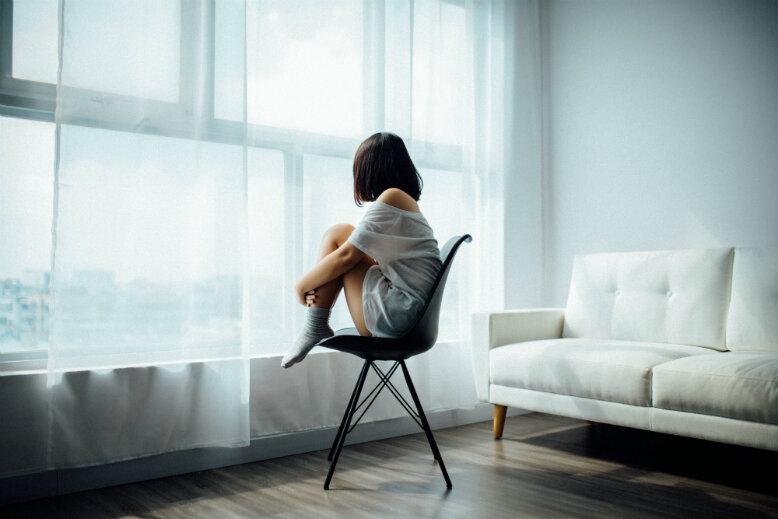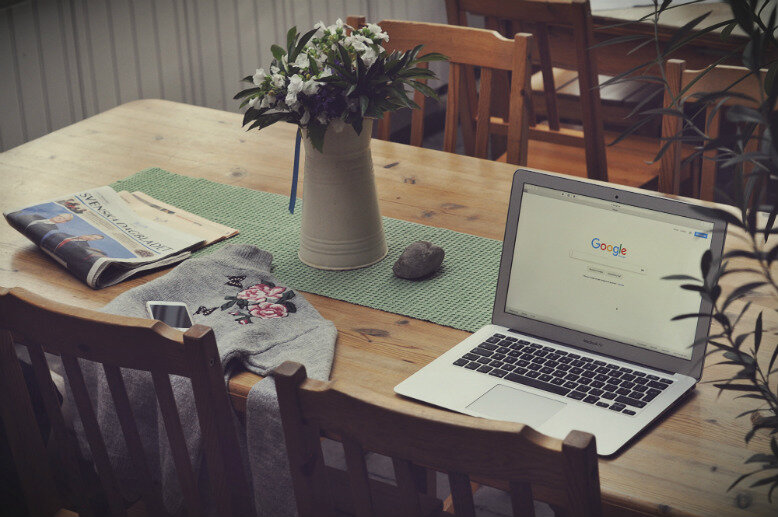Shifting to a "new normal" is, to say the least, overwhelming. In this unprecedented crisis, no one really knows for sure how things are going to turn out and what they can do about it. All that most can do is to bide the time at home and wait for the situation to improve. With all the extra time indoors, a lot have been looking for ways to cope — from getting into new hobbies to trying out new recipes — it's a popular sentiment to take advantage of the downtime to get productive and improve your skills. And while that's great and all, there are still some who find it hard to reach such goals especially during this troubling time. While others might get a boost in inspiration, others might instead experience the opposite and face bouts of restlessness and feel sluggish throughout the day.
What is it about being stuck at home that makes it hard for us to focus? We turn to Amanda Cheang, Registered & Licensed Counsellor with the Malaysian Board of Counsellors (LKM) for answers as well as mental health tips to help us through this troubling time.
Dealing with isolation
Since humans are social beings, when isolated for a long time, we can experience a condition called 'cabin fever', according to Amanda. "The emotional reactions include boredom, anxiety, feeling depressed and hopelessness while behaviourally, we may become restless, irritable and have trouble concentrating," Amanda detailed. Being cooped up also affects us physiologically, and we might find ourselves feeling tired, developing sleep problems, as well as changes in appetite. "For people who have pre-existing mental health conditions, it gets much worse from the isolation," she noted.

Being cooped up for weeks during the quarantine can leave you feeling restless and tired
A struggle with productivity
And indeed, we see people initially experiencing at least some of these troubles during the lockdown period. For one, there's Rainne. Though still able to take on some of her hobbies like reading, embroidery, and annoying her cats, the 27-year-old still has difficulties indulging in such activities in between her job hunting. "Sometimes, I find that it’s hard to pick up a new book because there are things I should manage at home, and there’s that nagging voice inside my head telling me that I shouldn’t be reading right now," she confessed. It bothers her because she was used to constantly hustling that she feels restless and bothered when she's not able to do something productive.
Meanwhile, there's also Stephen, 22, who had initially set a lot of personal goals when the lockdown occurred. "I planned to go back to doing art I did before — calligraphy, watercolour painting, and [practising on] Illustrator. But it wasn't easy; I just did it in sporadic moments." Having to also do his full-time copywriting job at home, he just couldn't find the time and energy to undertake them all.

Sometimes, cultivating new skills help people process difficult times
Likewise, web content writer Gill, 21, faced the same struggles. Her new work-from-home setup just didn't make it conducive for her to go through her long-untouched pile of books and work on getting her short stories published. She had also enrolled in online courses, hoping to pick up new skills that would help her in her digital marketing career, but it didn't turn out as she had hoped. Gill recalled being so pumped at first, but as days went by, it became harder for her to continue on these tasks. "I felt so tired every day and I ended up just binge-watching Dae Jang Geum," she confided, admitting she beat herself up for wasting her time.
Echoing the same guilty sentiments is Pau, 23, a medical student who's quite demotivated in this time. Now stuck at home, she'd hoped she'd be able to try out interesting baking recipes, get back on track on her fitness goals, all while being staying on top of her studies. "All our lessons and exams have gone online, and I find it difficult to adjust with that," she complained. Instead of doing all these activities she had planned, her exhaustion prompted her to sleep for most of the day, often leading her to panic and cram all her studying right at the crucial point.

Shifting to a remote-work setup doesn't always give young professionals time to pursue other enriching activities
Finding ways to cope
Though it might not be how we wish things to be, all these productivity issues are valid. "The lockdown does have a pervasive impact on our body and brain’s functioning, and everyone reacts to it very differently," Amanda explained. As our productivity lowers during this time, it's perfectly normal to not produce as much output as we initially aim for. But to really cope and face the situation, Amanda said, "I think we need to ask ourselves what is acceptable for us? 'Would I lose my job, or should my mental health come first? What is at stake? How productive do I want to be? What can I do so that my level of productivity works for me instead of against me?" Reflecting on ourselves and finding out where we can draw the line will help us plan our first step in caring for our mental well-being.
Savouring the silent moments
Instead of feeling stress and guilt when we find ourselves idle, take advantage of this downtime. We may always be at home, but this doesn't necessarily mean that we have more time in our hands to take on more projects. We have chores to do and a lot of us have shifted to doing remote work. You might be tempted to compare your progress with those of your friends on social media, but Amanda reminds us that "this is a difficult time mentally, physically, and emotionally." She highlights the importance of self-care, "if you feel like reading a book, read a book. If you feel like lying on the bed the whole day, go ahead. We don't have to compare ourselves to others. Perhaps we can make use of this time to learn to be compassionate and kind towards ourselves."

To help people recharge, mental help tips often encourage people to let go and take a break
Instead of viewing these moments as a waste of time, take them instead as a break when you can relax. Taking a break every now and then, and just letting go of the things we should be doing is important to our well-being. Still, it should be done in moderation. "If we do it with the intention to savour the silence and pause, it is called resting and recharging," Amanda expounded," sometimes the silence helps us to reflect on our lives, to create new perspectives, and to reprioritise what's important for us."
Getting in the right headspace
Amanda stresses the importance of refreshing our perspective of the lockdown, saying: "If we look at this as a way of growing our resilience, and see it as a chance to look into ourselves away from all the distraction, it creates a whole new meaning for us." Let's use these moments to care for our minds and our bodies as well. "We need to calm our bodies, as the pandemic may or may not trigger the body to go into survival mode. Engaging in meditation and breathing exercises is a very helpful way to calm our bodies," she suggested as we work better when our bodies are not in survival mode.

Meditating and sorting your thoughts can help clear your mind
When you've finally settled into a calmer mindset, begin establishing a new routine to replace your old one. Start small. Amanda said it can simply include the following: "Wake up time, productivity time, self-care time, meal times, and sleeping time." Following a set plan will help you better cope with the situation, so that when you're finally up for it, you can readily take on your new goals, perhaps learn a skill or two you'd think would help you in the future. "Just take action — even with small steps, things will start to go into motion. Keep exploring, trying, and experimenting to find something that works for you," she encouraged.
Settling down
And indeed, acknowledging the importance of breaks have helped those initially troubled by their inactivity. For Rainne, having her friends around helped her see it's value. She recounted, "Someone told me that I should learn how to relax, so I tell myself that this is what my body tells me to do at this point in time." Little by little, she's encouraging herself to indulge in her hobbies and think about herself and what she truly wants.
There are also people like Stephen who've come into terms with their situation by going head-to-head with his reality. With the constraints of his job, he realised he really won't have much time to go about his side plans. "When people talked about cultivating something while in isolation, I understood that that advice was for people who had a lot of time," he explained.

Work on establishing a simple routine to help you transition into the situation
Also realising that almost half of her day — or night, rather, since she works on a night shift — is solely spent for her job, Gill has also come to terms with the fact that her extra hours during the day should be for rest. "I also realised that we aren't really on a break. There is a pandemic going on and it's a difficult time for everyone," she mused and with this, she has to focus her efforts on her everyday hustling in order to get through these times.
As for Pau, well, she has to give extra effort and stay up later to tick off all of her plans for the day. She tries to do little adjustments with her schedule to better fit her body clock. "I just keep reminding myself that things will go back to normal and that I'll be able to go back to my usual routine sooner or later," she said.
Recognising deeper problems
These mental help tips are pieces of advice we can take to mind if we ever find ourselves disappointed in our lack of progress during the quarantine. However, if you feel that being in isolation has severely impeded your cognitive functions, then it's possible you have underlying issues to resolve. The inability to think logically, having bad memory all of a sudden and difficulty following simple instructions, as well as experiencing an exaggerated or irrational sense of fear are just some of the symptoms Amanda cited that could indicate that what you're experiencing is more than an issue with unproductivity. If you're "wanting to start on a task but somehow unable to think, if your brain feels blank and you just stare at your work for a long period of time without anything coming out, if you're feeling your anxiety and stress levels rise, experiencing disturbed sleep, or if you're starting to have panic attacks" then it definitely becomes a serious issue. Amanda suggests that signing up for therapy sessions could help you cope. Reaching out and getting professional aid helps you to reach higher self-awareness, and learn new skills and perspective to cope.
Comments, questions or feedback? Email us at [email protected].








